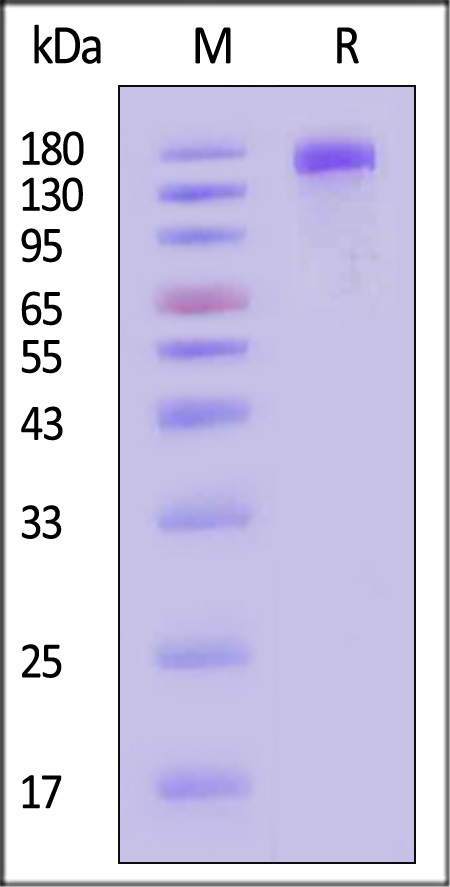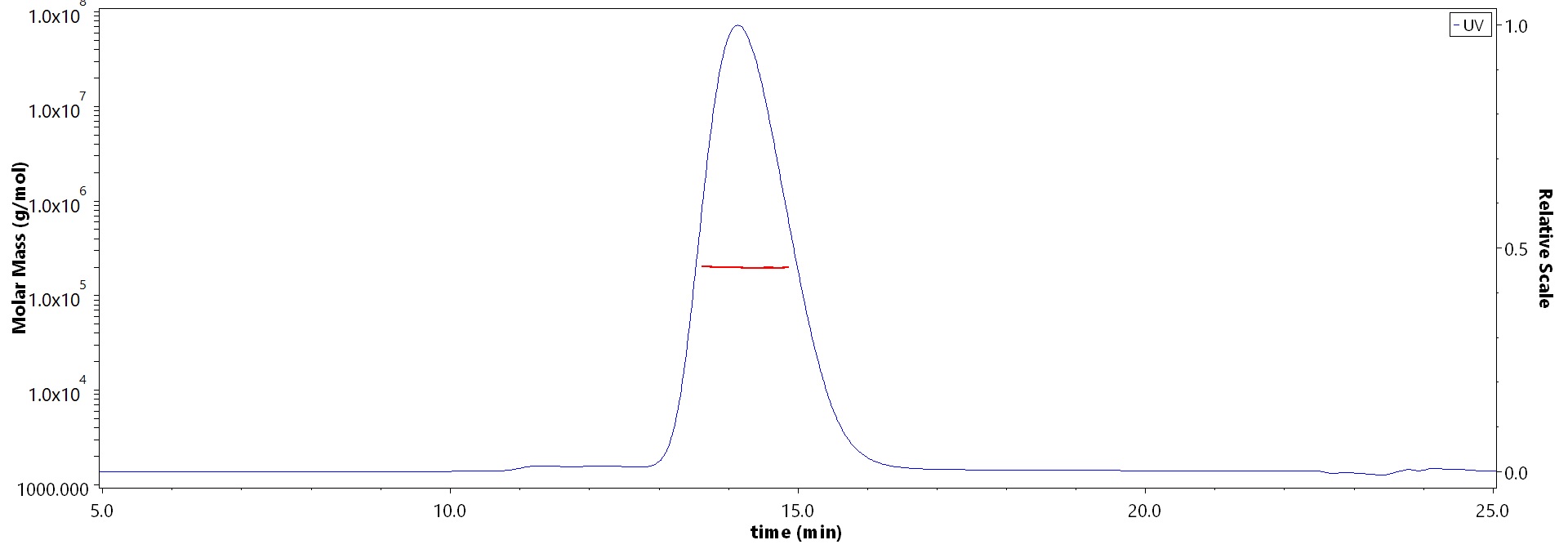分子别名(Synonym)
CD280, CLEC13E, ENDO180, UPARAP
表达区间及表达系统(Source)
Human MRC2 Protein, His Tag (MR2-H52H3) is expressed from human 293 cells (HEK293). It contains AA Gly 31 - Ala 1414 (Accession # Q9UBG0).
Predicted N-terminus: Gly 31
Request for sequence
蛋白结构(Molecular Characterization)

This protein carries a polyhistidine tag at the C-terminus.
The protein has a calculated MW of 158.0 kDa. The protein migrates as 170-180 kDa when calibrated against Star Ribbon Pre-stained Protein Marker under reducing (R) condition (SDS-PAGE) due to glycosylation.
内毒素(Endotoxin)
Less than 1.0 EU per μg by the LAL method.
纯度(Purity)
>90% as determined by SDS-PAGE.
>90% as determined by SEC-MALS.
制剂(Formulation)
Lyophilized from 0.22 μm filtered solution in PBS, pH7.4 with trehalose as protectant.
Contact us for customized product form or formulation.
重构方法(Reconstitution)
Please see Certificate of Analysis for specific instructions.
For best performance, we strongly recommend you to follow the reconstitution protocol provided in the CoA.
存储(Storage)
For long term storage, the product should be stored at lyophilized state at -20°C or lower.
Please avoid repeated freeze-thaw cycles.
This product is stable after storage at:
- -20°C to -70°C for 12 months in lyophilized state;
- -70°C for 3 months under sterile conditions after reconstitution.
电泳(SDS-PAGE)

Human MRC2 Protein, His Tag on SDS-PAGE under reducing (R) condition. The gel was stained with Coomassie Blue. The purity of the protein is greater than 90% (With Star Ribbon Pre-stained Protein Marker).
SEC-MALS

The purity of Human MRC2 Protein, His Tag (Cat. No. MR2-H52H3) is more than 90% and the molecular weight of this protein is around 175-215 kDa verified by SEC-MALS.
Report
背景(Background)
This gene encodes a member of the mannose receptor family of proteins that contain a fibronectin type II
domain and multiple C-type lectin-like domains. The encoded protein plays a role in extracellular matrix remodeling by mediating the internalization and lysosomal degradation of collagen ligands. Expression of this gene may play a role in the tumorigenesis and metastasis of several malignancies including breast cancer, gliomas and metastatic bone disease.























































 膜杰作
膜杰作 Star Staining
Star Staining











